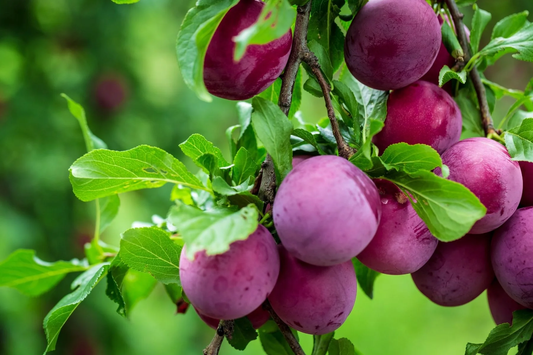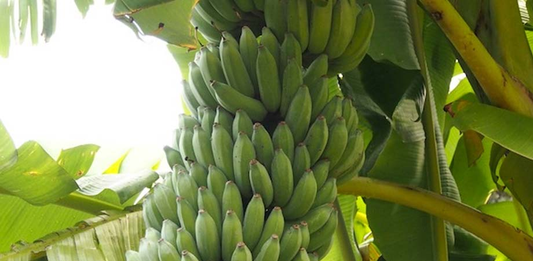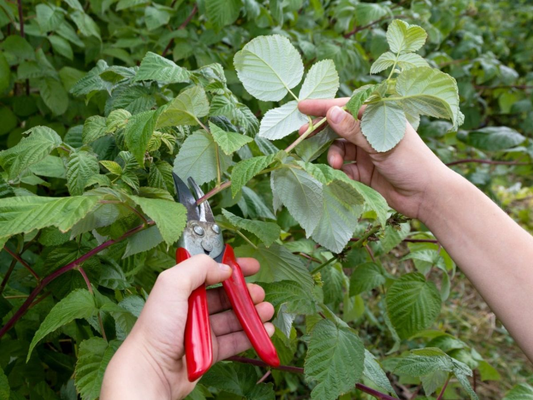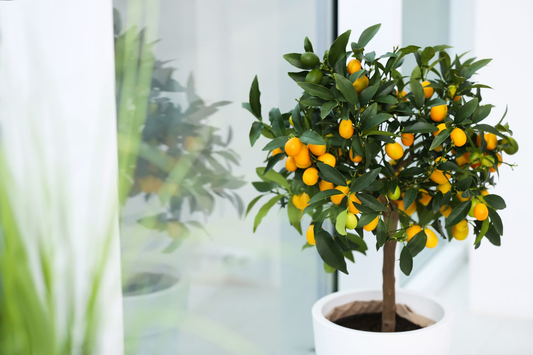Buy Organic Flower Seeds
Share
- 1. Introduction
- 2. Why Choose Organic Flower Seeds?
- 3. Top Types of Organic Flower Seeds to Buy
- 4. Where to Buy Organic Flower Seeds
- 5. How to Identify High-Quality Organic Flower Seeds
- 6. How to Grow Organic Flowers from Seed
- 7. Benefits of Growing Organic Flowers
- 8. The Cost of Organic Flower Seeds
- 9. Common Challenges When Growing Organic Flowers
- 10. Organic Flower Seed Saving and Sustainability
- 11. FAQ - Frequently Asked Questions
1. Introduction
Organic flower seeds have become increasingly popular as more gardeners realize the benefits of sustainable and chemical-free gardening. As the world embraces eco-conscious living, the demand for organic gardening practices, including growing flowers from organic seeds, continues to rise. Organic flower seeds are not only a great way to enhance the beauty of your garden but also contribute to a healthier environment and support biodiversity.
Growing flowers with organic seeds offers numerous advantages, making it a choice that both novice and experienced gardeners are opting for. Here’s why:
- Healthier Garden Ecosystem: Organic flowers grow in nutrient-rich soil without the need for synthetic chemicals, making them safer for both the environment and your health.
- Support for Pollinators: By growing organic flowers, you help support essential pollinators like bees and butterflies, which are crucial to maintaining biodiversity.
- Stronger, Resilient Plants: Organic flowers often have stronger roots and better resistance to pests, making them more resilient over time.
- Environmental Benefits: Organic gardening practices contribute to soil health, water conservation, and reduce pollution, helping to protect the planet.
Choosing high-quality organic flower seeds is key to achieving success in your gardening endeavors. High-quality seeds ensure that your flowers will grow strong, vibrant, and disease-resistant. When buying seeds, consider these important factors:
- Certification: Look for reputable brands that offer certified organic seeds, ensuring that they have been grown and harvested without harmful chemicals.
- Seed Source: Opt for trusted suppliers known for their quality and transparency in sourcing and production practices.
- Packaging Information: Read the seed packet to ensure it contains essential growing instructions and has a good germination rate.
For a healthier, eco-friendly garden, consider buying organic flower seeds. By choosing organic, you are not only enhancing your garden's beauty but also contributing to a cleaner, greener planet. It’s a small step towards making a big difference in preserving our environment while enjoying vibrant, chemical-free blooms year after year.

2. Why Choose Organic Flower Seeds?
What are Organic Flower Seeds?
Organic flower seeds come from plants that have been grown without the use of synthetic pesticides, herbicides, or chemical fertilizers. These seeds are harvested from plants cultivated using organic farming practices, which emphasize the health of the soil, the environment, and the overall ecosystem. The key differences between organic and non-organic seeds are:
- Organic Seeds: Sourced from plants grown using natural methods, such as crop rotation, composting, and biological pest control. They are free from GMOs (genetically modified organisms).
- Non-Organic Seeds: Often grown with the aid of synthetic chemicals, including pesticides and herbicides, and may come from genetically modified plants. These seeds are sometimes treated with fungicides or other chemicals to improve germination rates.
Benefits of Organic Seeds:
Choosing organic flower seeds offers numerous advantages for your garden, the environment, and your health. Here are some key benefits:
- No Synthetic Pesticides, Herbicides, or Chemical Fertilizers: Organic seeds are produced without the use of harmful chemicals, ensuring that your flowers and soil are free from toxic substances.
- Better for Pollinators (Bees, Butterflies, etc.): Organic flowers attract and support pollinators, which are essential for the ecosystem. These beneficial insects thrive in chemical-free environments, helping to maintain biodiversity.
- Healthier Soil and Environment: Organic flower gardening enhances soil quality by enriching it with organic matter, improving soil structure, and promoting healthy microbial activity. It also reduces environmental pollution, contributing to cleaner water and air.
- Supports Sustainable Farming Practices: Organic farming encourages practices that maintain ecological balance, preserve natural resources, and promote long-term sustainability in agriculture. This method helps protect wildlife and reduces the carbon footprint of gardening.
Common Misconceptions about Organic Seeds:
Despite their growing popularity, there are still some common myths surrounding organic seeds. Let’s debunk these misconceptions:
- Myth #1: Organic Seeds are More Expensive: While organic seeds may have a higher upfront cost, they often yield stronger, healthier plants that are more resistant to pests and diseases. This can save you money on fertilizers and pesticides in the long run.
- Myth #2: Organic Seeds are Lower Quality: Organic seeds are typically of higher quality due to careful selection and better growing practices. They are often grown in nutrient-rich, chemical-free environments, which results in more robust plants.
- Myth #3: Organic Seeds are Harder to Find: With the growing demand for organic gardening, many garden centers and online stores now offer a wide variety of organic flower seeds. Availability has dramatically improved over the years.
3. Top Types of Organic Flower Seeds to Buy
Annuals vs. Perennials:
When choosing organic flower seeds, it’s important to understand the difference between annual and perennial plants, as they offer different benefits and growing experiences. Here’s a breakdown:
- Annual Organic Flower Seeds: These flowers complete their life cycle in one year. They germinate, bloom, produce seeds, and die all within the same growing season. Examples include sunflowers and marigolds.
- Perennial Organic Flower Seeds: These flowers live for multiple seasons, coming back year after year. They bloom each season, and their roots survive through winter. Examples include coneflowers and lavender.
Why Choose One Over the Other?
The choice between annual and perennial organic flower seeds depends on several factors:
- Annuals: Ideal for gardeners who want quick, vibrant color and a variety of flowers each season. They are perfect for garden beds that change with the seasons.
- Perennials: Better suited for gardeners who want long-term investments in their garden. Perennials provide stability and may require less maintenance over time, as they come back year after year.
Popular Organic Flower Varieties:
There are many organic flower varieties to choose from, each with unique growth habits, colors, and uses in the garden. Here are some of the top organic flower seeds to buy:
- Sunflowers (Helianthus annuus): Known for their large, bright yellow blooms, sunflowers thrive in full sun and attract pollinators. They grow tall and make great cut flowers or border plants.
- Marigolds (Tagetes spp.): Marigolds are hardy annuals with bright yellow, orange, or red blooms. They are easy to grow, excellent for pest control, and make great companion plants in vegetable gardens.
- Zinnias (Zinnia elegans): Zinnias are vibrant, drought-tolerant flowers available in a range of colors, from red to purple. They are ideal for adding color to garden borders and are also popular as cut flowers.
- Nasturtiums (Tropaeolum majus): Nasturtiums are known for their bright, edible flowers in shades of orange, red, and yellow. They are perfect for hanging baskets or as ground cover, and their leaves and flowers can be used in salads.
- Poppies (Papaver spp.): Poppies offer delicate, paper-like petals in colors like red, pink, and purple. They are best for wildflower gardens and can add a whimsical touch to any garden landscape.
Specialty Organic Seeds:
If you’re looking for flowers that serve specific purposes in your garden, consider buying specialty organic flower seeds. These varieties offer unique benefits and are ideal for different gardening needs:
- Cut Flowers: For beautiful, long-lasting cut flowers, consider varieties like snapdragons, dahlias, and cosmos. These flowers can be harvested to create stunning bouquets throughout the growing season.
- Pollinator Gardens: If you're focused on attracting pollinators like bees and butterflies, choose flowers such as lavender, echinacea, and milkweed. These flowers provide essential nectar and habitat for pollinators.
- Drought-Tolerant Flowers: For low-maintenance, water-efficient gardens, consider flowers like black-eyed susans, lavender, and coneflowers. These plants are perfect for xeriscaping and arid climates.

4. Where to Buy Organic Flower Seeds
Reputable Online Sources:
When it comes to buying organic flower seeds, online retailers offer a vast selection. Many trusted websites specialize in high-quality, certified organic seeds, making it easier to find specific varieties for your garden. Some reputable online sources include:
- Seed Savers Exchange: Known for its commitment to preserving heirloom and organic varieties, Seed Savers Exchange offers a wide range of organic flower seeds.
- Johnny’s Selected Seeds: A trusted source for organic gardening products, Johnny’s offers an extensive selection of organic flower seeds and plants.
- High Mowing Organic Seeds: Dedicated to 100% organic seeds, High Mowing provides a variety of organic flower seeds for all growing conditions.
- Baker Creek Heirloom Seeds: Specializes in rare and heirloom organic seeds, including flowers that are hard to find elsewhere.
Buying online provides the advantage of a broad selection, allowing gardeners to find varieties that may not be available locally. Many online stores also offer detailed planting guides, reviews, and seed certifications to ensure you’re getting high-quality, organic seeds.
Local Nurseries & Garden Centers:
Shopping at local nurseries and garden centers can offer a more personalized experience. Here are some pros and cons to consider when buying organic flower seeds locally:
-
Pros:
- Immediate access to seeds without waiting for shipping.
- Ability to inspect seeds in person for quality and packaging.
- Support for local businesses and growers.
-
Cons:
- Limited selection compared to online stores.
- Higher prices due to overhead costs.
To ensure that the seeds are certified organic, always ask the store for proof of certification or look for reputable certifications on the packaging, such as the USDA Organic label or the OMRI (Organic Materials Review Institute) certification.
Farmers' Markets & Seed Swaps:
Farmers' markets and seed swaps provide a great opportunity to buy organic flower seeds directly from local growers and gardeners. These community-based options often offer heirloom and organic varieties that are hard to find elsewhere. Additionally, seed swaps allow gardeners to exchange seeds with others, fostering a sense of community and sustainability. Here’s what to consider when buying seeds at these events:
- Look for vendors who advertise organic practices or ask for certification details.
- Seed swaps can be a fun way to discover new varieties and connect with fellow gardeners.
5. How to Identify High-Quality Organic Flower Seeds
Certification Labels:
When shopping for organic flower seeds, it’s important to look for certification labels to ensure the seeds are genuinely organic. The most common and widely recognized certification labels include:
- USDA Organic: This label indicates that the seeds meet strict organic standards set by the U.S. Department of Agriculture, including no synthetic pesticides, herbicides, or GMOs.
- OMRI (Organic Materials Review Institute): OMRI certification ensures that products meet organic standards and can be used in organic farming. It’s another reliable certification for organic flower seeds.
Certified organic seeds are grown according to rigorous guidelines that prioritize sustainability, environmental health, and biodiversity, making them a trustworthy choice for organic gardening.
Seed Packaging Information:
The packaging of organic flower seeds provides valuable information that can help you assess the quality of the seeds. Look for the following key details on seed packets:
- Expiration Date: Always check for the expiration date or "packed for" date to ensure the seeds are fresh. Expired seeds may have lower germination rates.
- Growing Tips: Quality seed packets often include detailed growing instructions, such as preferred planting depth, spacing, and sunlight requirements.
- Origin of Seeds: A reputable seed packet will list where the seeds were grown. Ideally, look for seeds sourced from regions with climates similar to your own for the best growing results.
Seed Source Transparency:
When purchasing organic flower seeds, it’s important to buy from suppliers who are transparent about their farming practices. High-quality seed suppliers will:
- Provide information on how the seeds are grown, whether they are sourced from certified organic farms, and what methods are used in cultivation.
- Be open about their practices, such as avoiding the use of synthetic chemicals and adhering to organic farming standards.
Transparency helps ensure you are purchasing truly organic seeds, and it builds trust between the gardener and the supplier.

6. How to Grow Organic Flowers from Seed
Preparing Your Garden Bed:
Before planting organic flower seeds, it’s important to prepare your garden bed to provide a healthy environment for growth. Follow these tips for optimal soil preparation:
- Soil Testing: Test your soil to determine its pH and nutrient levels. This helps you understand any amendments needed to improve soil health.
- Soil Amendment: Enrich your soil with organic matter, such as compost or aged manure, to provide the nutrients flowers need to thrive.
- Organic Fertilizers: Use organic fertilizers like fish emulsion, blood meal, or bone meal to add necessary nutrients without harmful chemicals. Always follow the recommended application rates.
- Soil Drainage: Ensure your soil has good drainage. If it’s clay-heavy, add organic material to improve its structure and drainage.
Planting Seeds:
The planting process varies depending on the type of flowers you’re growing. Here are general guidelines for planting organic flower seeds:
- Seed Depth: Most flower seeds should be planted at a depth that is about twice the size of the seed. For example, small seeds like pansies should be planted shallow, while larger seeds like sunflowers need deeper planting.
- Spacing: Follow spacing recommendations on the seed packet. For example, sunflowers need about 12–18 inches between each plant, while zinnias can be spaced 8–12 inches apart.
- Row vs. Scatter Planting: For some flowers, such as poppies, scattering seeds over the soil surface is sufficient. For others, like marigolds, it’s better to plant in rows.
Watering and Maintenance:
Watering and ongoing maintenance are essential for healthy growth. Here are best practices:
- Watering: Keep the soil consistently moist, especially during germination. Once seedlings emerge, water regularly but avoid waterlogging, as it can lead to root rot.
- Mulching: Apply a layer of organic mulch to help retain moisture, suppress weeds, and keep the soil temperature stable.
- Organic Pest Control: Use natural pest control methods like introducing beneficial insects (e.g., ladybugs for aphid control) or using neem oil or insecticidal soap for treating common pests like aphids or spider mites.
Transplanting Seedlings:
Once your seedlings are ready, it’s time to transplant them into your garden or containers. Here’s when and how to do it:
- When to Transplant: Wait until the seedlings have developed strong roots and have several true leaves. This typically happens 4–6 weeks after germination.
- Transplanting Steps: Carefully dig around the seedling to avoid disturbing the roots. Transplant into the garden or container at the appropriate depth for each flower variety.
- Hardening Off: Before transplanting outdoors, gradually acclimate seedlings to outdoor conditions by placing them in a sheltered spot for a few hours each day over the course of a week.

7. Benefits of Growing Organic Flowers
Environmental Impact:
Growing organic flowers has a significant positive effect on the environment. Here are some of the key environmental benefits:
- Support for Pollinators: Organic flowers provide a healthy food source for pollinators like bees, butterflies, and hummingbirds. By avoiding synthetic pesticides and chemicals, organic gardens help maintain the local pollinator population.
- Reduced Chemical Runoff: Organic gardening reduces the risk of harmful chemicals entering local waterways, improving water quality in surrounding areas.
- Soil Health: Organic practices enrich the soil with natural nutrients, encouraging biodiversity and improving overall soil structure.
Aesthetic Appeal:
Organic flowers are known for their enhanced beauty and fragrance, often offering a richer sensory experience than conventionally grown flowers. Some of the reasons for this are:
- Richer Colors: Organic flowers tend to have more vibrant colors due to the healthier soil and natural growing conditions.
- Stronger Fragrance: Flowers grown without synthetic chemicals often have a more intense fragrance, which can enhance the atmosphere in your garden or home.
Healthier Garden Ecosystem:
Using organic methods helps foster a more balanced and healthy garden ecosystem. These benefits include:
- Improved Soil Health: Organic practices promote healthy soil by increasing microbial activity and organic matter, which in turn improves nutrient availability.
- Better Water Retention: Organic soil retains moisture more effectively, reducing the need for frequent watering and helping plants thrive during dry spells.
- Biodiversity: Organic gardens support a greater variety of plant and animal life, which creates a more resilient and sustainable garden ecosystem.
8. The Cost of Organic Flower Seeds
Price Comparison:
When comparing organic flower seeds to non-organic options, the initial cost difference can be noticeable. Here's how the two stack up:
- Organic vs. Non-Organic: Organic seeds are often priced higher than conventional seeds due to the cost of certification, sustainable farming practices, and limited availability.
- Cost-Benefit Analysis: While organic seeds may cost more upfront, they offer several benefits that can offset the initial price difference. Organic flowers are grown without harmful pesticides and chemicals, which contributes to a healthier garden and environment.
- Investment in Organic Seeds: The investment in organic seeds often pays off in the form of healthier plants, better soil quality, and a more vibrant, sustainable garden ecosystem.
Long-Term Value:
While organic flower seeds may cost more initially, there are long-term savings and benefits that make them a worthwhile investment:
- Reduced Need for Chemicals: Since organic flowers are less likely to require chemical fertilizers or pesticides, gardeners save money on these products over time.
- Resilient Plants: Organic flowers tend to be hardier and more resistant to pests and diseases, reducing the need for costly treatments and interventions.
- Self-Sustaining Garden: Growing flowers from organic seeds can lead to a more self-sustaining garden where you save on plant purchases year after year by saving seeds for the next growing season.
Budgeting Tips:
Buying organic flower seeds on a budget doesn’t have to be difficult. Here are some tips to help you save:
- Buy in Bulk: Purchasing organic flower seeds in bulk can lower the price per packet, especially for varieties you plan to grow year after year.
- Shop During Sales: Take advantage of seasonal sales or discounts at garden centers and online stores to buy organic seeds at a reduced price.
- Seed Swaps: Participate in seed swaps with other gardeners to exchange organic flower seeds, which helps reduce the cost of buying new seeds each season.
9. Common Challenges When Growing Organic Flowers
Pests and Diseases:
Managing pests and diseases organically can present unique challenges. Here are some organic methods to help combat common issues:
- Neem Oil: Neem oil is a natural pesticide that helps control a variety of pests, including aphids, mites, and whiteflies, without harming beneficial insects.
- Companion Planting: Certain plants can help deter pests or attract beneficial insects. For example, planting marigolds alongside tomatoes can help repel aphids.
- Beneficial Insects: Encourage the presence of ladybugs, lacewings, and predatory beetles, which can help manage pest populations naturally.
- Organic Fungicides: Use plant-based fungicides like copper or sulfur to prevent fungal diseases without harming the environment.
Soil Quality:
Maintaining healthy soil for organic flowers requires effort and attention. Some challenges you may face include:
- Soil Fertility: Organic flowers rely on the natural nutrients in the soil, so it's important to regularly amend the soil with compost or organic matter to replenish nutrients.
- Soil Drainage: Organic flowers need well-drained soil to thrive. Improving soil texture through organic amendments like compost can help prevent waterlogging and root rot.
- Soil pH: Regularly testing soil pH is necessary for optimal growth, as certain flowers prefer more acidic or alkaline conditions. Adjust soil pH naturally with organic options like lime or sulfur.
Climate & Weather Issues:
Organic flowers are sensitive to climate and weather fluctuations. Here’s how to manage environmental challenges:
- Watering Needs: Organic flowers often require more frequent watering, especially during dry spells. Mulching can help retain moisture in the soil and prevent the need for excessive watering.
- Frost Protection: Organic flowers may be more vulnerable to cold weather, so consider using organic methods like row covers or frost blankets to protect them from frost damage.
- Heat Stress: During hot summers, organic flowers may need additional care, including shade protection or extra water, to prevent heat stress and wilting.

10. Organic Flower Seed Saving and Sustainability
Saving Your Own Seeds:
Collecting and storing your own organic flower seeds is a rewarding process that helps you save money and ensures your flowers remain healthy. Follow these steps to save seeds effectively:
- Choose the Right Flowers: Select flowers that are disease-free and have strong growth habits. Let the flowers go to seed naturally.
- Harvesting Seeds: Wait until the flowers have fully matured and the seed heads are dry. For flowers like sunflowers, remove the seeds from the head after it turns brown and starts to dry.
- Cleaning the Seeds: Gently remove any remaining flower petals or debris. You can clean seeds by rubbing them between your hands or using a sieve for smaller seeds.
- Drying the Seeds: Spread seeds out on a paper towel or mesh screen to dry completely before storing them. This helps prevent mold and rot during storage.
- Storing the Seeds: Store seeds in a cool, dry place in paper envelopes or glass jars. Label them with the date and variety for easy identification next season.
Benefits of Seed Saving:
Saving your own organic flower seeds brings multiple benefits that promote sustainability and self-sufficiency:
- Cost Savings: Once you’ve saved seeds, you can use them year after year, reducing the need to buy new seeds each growing season.
- Preserving Heritage Varieties: Saving seeds from heirloom or rare flower varieties helps preserve biodiversity and maintain unique garden plants.
- Self-Sufficiency: By saving your own seeds, you reduce dependence on commercial seed suppliers and foster a more sustainable gardening practice.
How to Ensure Your Seeds Stay Organic:
To maintain the purity of your organic flower seeds, it’s important to follow these tips to prevent cross-pollination and keep seeds truly organic:
- Separate Varieties: If growing multiple varieties of the same flower, space them apart to prevent cross-pollination. Some flowers require larger distances between varieties to ensure seed purity.
- Hand Pollination: For certain flowers that are prone to cross-pollination, consider hand-pollinating to control which flowers pollinate each other.
- Save Seeds from Healthy Plants: Only save seeds from plants that have shown good growth and disease resistance. This helps ensure that your seeds produce healthy, strong flowers in the future.
11. FAQ - Frequently Asked Questions
1. What are the best organic flower seeds to start with for beginners?
For beginners, consider starting with easy-to-grow organic flower seeds like:
- Sunflowers: Fast-growing and hardy, perfect for new gardeners.
- Marigolds: Pest-repellent and low-maintenance.
- Zinnias: Tolerant of heat and drought, with a long blooming period.
2. How can I tell if flower seeds are truly organic?
Look for certification labels such as the USDA Organic seal or check the seed packet for details on the seed source and farming practices. Trusted retailers will provide transparency on their organic certification.
3. Can I grow organic flowers in containers?
Yes, many organic flowers thrive in containers. Ensure your containers have proper drainage and use high-quality, organic potting soil. Some great options for containers include petunias, geraniums, and pansies.
4. How do I prevent pests without using chemicals on my organic flowers?
Use natural pest control methods such as:
- Neem oil: A natural pesticide to control common pests.
- Companion planting: Grow pest-repelling flowers like marigolds or basil alongside susceptible plants.
- Beneficial insects: Introduce ladybugs or lacewings to help control aphids and other pests.
5. How long do organic flower seeds last?
Organic flower seeds typically last 1–3 years if stored properly in a cool, dry place. However, seed viability may decline over time, so it’s best to use them within the first year for the best germination rates.
6. Is it necessary to buy organic flower seeds every year?
No, if you save seeds from your organic flowers (as discussed in the previous section), you can use them year after year, reducing the need to buy new seeds each season.
7. Can organic flower seeds be grown in all climates?
Most organic flowers can be grown in a wide range of climates, but it's important to select varieties that are suited to your local conditions. Consider growing hardy flowers for cooler climates and drought-tolerant varieties for hot, dry areas.
8. What are the most fragrant organic flowers I can grow?
For fragrant organic flowers, try these varieties:
- Lavender: Known for its calming aroma, perfect for garden borders.
- Roses: Many organic rose varieties have a rich, sweet fragrance.
- Sweet Peas: These flowers produce a lovely, delicate scent ideal for bouquets.
Additional Resources
How to Grow Indoor Flowering Plants from Seeds




